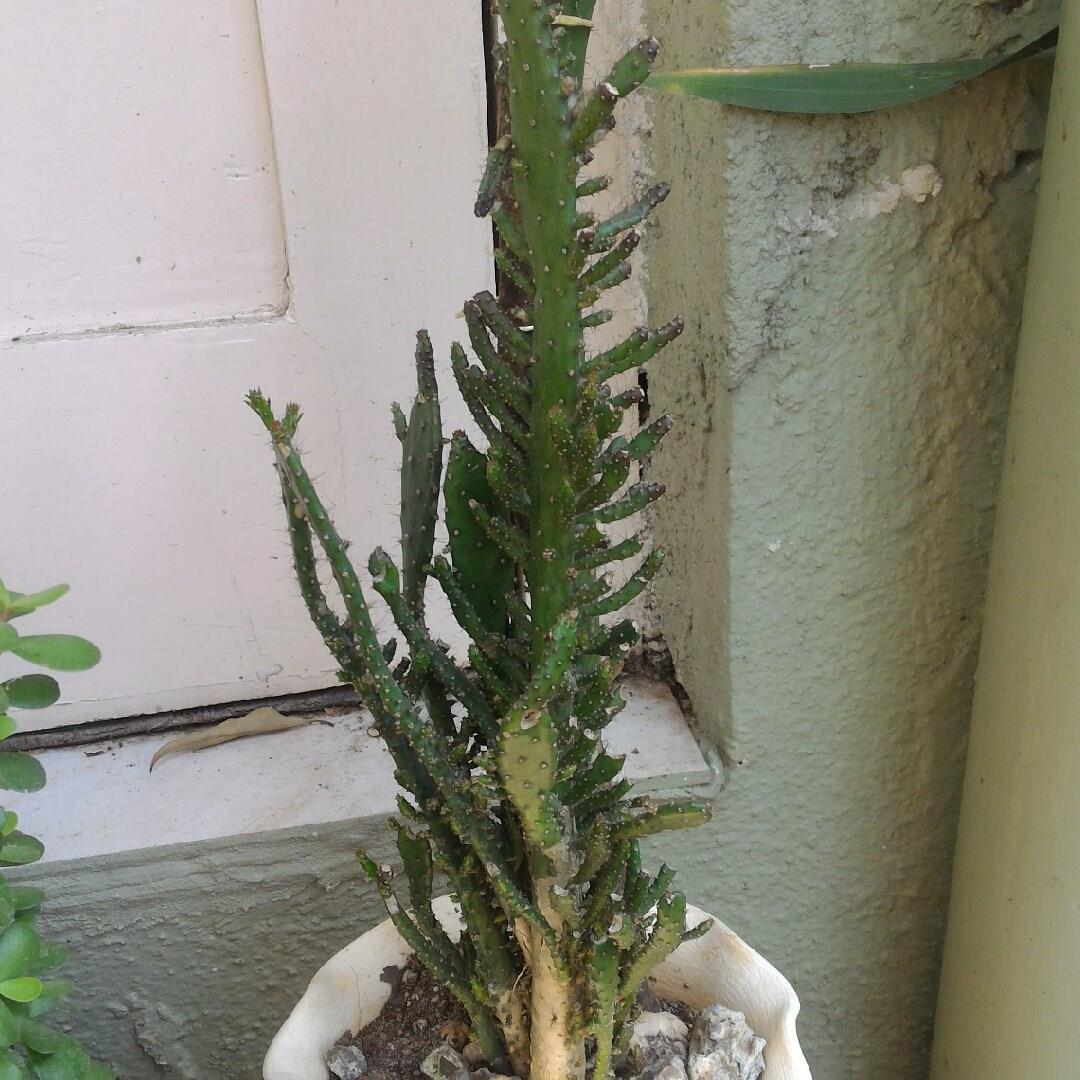
Opuntia Vulgaris Monacantha
Opuntia Monacantha
Opuntia are commonly referred to as 'Prickly Pear' plants and are native to the Americas. Prickly pears typically grow with flat, rounded pads (cladodes) armed with two kinds of spines; large, smooth, fixed spines and small, hairlike prickles called glochids. Opuntia species are the most cold-tolerant of the lowland cacti. Requires porous cactus soil and adequate airflow. Water thoroughly when the soil is dry to the touch. Protect from frost; hardy to 32F. Opuntia Vulgaris Monacantha is a dwarf variant of the larger Prickly Pear cactus Opuntia monacantha. It is also known to have a variegated form.
Contributed by @drumadixit
-
Full sun to partial shade
-
Very little water
-
A little frost hardy: 32F (0°C)
-
Light and free draining
Common name
Opuntia Monacantha
Latin name
Opuntia Vulgaris Monacantha
type
Flowering plant
family
Cactaceae
ph
5.0 - 7.5 Acid - Neutral
Plant & bloom calendar
-
Best time to plant
full grown dimensions
 0.30 M
1.00 M
0.30 M
1.00 M
Opuntia Vulgaris Monacantha
Opuntia are commonly referred to as 'Prickly Pear' plants and are native to the Americas. Prickly pears typically grow with flat, rounded pads (cladodes) armed with two kinds of spines; large, smooth, fixed spines and small, hairlike prickles called glochids. Opuntia species are the most cold-tolerant of the lowland cacti. Requires porous cactus soil and adequate airflow. Water thoroughly when the soil is dry to the touch. Protect from frost; hardy to 32F. Opuntia Vulgaris Monacantha is a dwarf variant of the larger Prickly Pear cactus Opuntia monacantha. It is also known to have a variegated form.
Propogation by cuttings
From Early Spring TO Early Spring
Angel Wings cactus can be propagated from seeds or from pads. Growing Angel Wings from pad is comparatively easy than seeds. To facilitate the rooting it is preferable to wait until the cuts are perfectly healed (about 1 – 2 week) before planting. Tuck them an inch deep on the ground or in containers. The rooting take place in a short time, usually in a month. Save the rooting pad from afternoon sun and water it when top one inch of soil seems dry.
Planting
From Early Spring TO Early Spring
Growing Angel Wings cactus on a sunny location allows the plant to thrive and fruit. Angel Wings cactus is a tropical plant so it loves warm exposure. However, it can withstand temperatures down to 0C but in areas with harsh winters it is good to plant it on a sheltered spot, near a wall or tall tree to protect it from cold drafts and fluctuation in temperature. If you’re living in a cooler climate, growing Angel Wings cactus in a container is the better option for you as it can only be grown on the ground where winter temperature remains above freezing.












